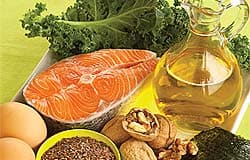| Atherosclerosis is a far-reaching disease with devastating consequences. Life Extension’s program for reducing the risk associated with atherosclerosis is based on aggressive measures to promote a healthy endothelium and reduce risk factors associated with coronary artery disease. Because all adults are at risk of atherosclerosis, all adults should make the necessary lifestyle changes to protect their arteries. This means getting adequate exercise under the supervision of a physician and eating a diet rich in fruits and vegetables and low in saturated fat. Also, weight loss by obese and overweight adults is an important element in reducing risk of atherosclerosis. People who have risk factors for atherosclerosis should take measures to modify them. Risk factors such as diabetes, high blood pressure, abnormal cholesterol, obesity, elevated homocysteine, elevated risk of blood clots, and a pro-inflammatory state are covered in this section. The ideal nutritional approach to atherosclerosis takes into consideration all existing risk factors and attempts to modify each one. Blood testing is a very important part of any risk-reduction program for coronary heart disease. Healthy adults should have their blood tested at least once a year. People who have heart disease or multiple risk factors should have their blood tested twice a year to monitor their progress. A comprehensive blood test will measure levels of blood lipids, C-reactive protein, homocysteine, fibrinogen, and other blood markers. Regular blood pressure monitoring is also important. Life Extension recommends an optimal blood pressure reading of 119/75. Life Extension also recommends that people aim for low levels of C-reactive protein, LDL, homocysteine, and other markers of disease. | Events
Fountain of Life Cruise
September 12-19, 2009
Enjoy a Special Time of Health and Beauty
Ports of call: Philipsburg, St. Maarten • San Juan, Puerto Rico • Labadee, Haiti Enjoy Life Extension’s 3rd Annual “Fountain of Life” Cruise aboard the world’s biggest and most imaginative maritime marvel — Liberty of the Seas. This brand new Royal Caribbean ship combines renowned big-ship hallmarks and many exciting innovations, like the new Vitality Wellness Program. Discover amenities and adventures never before available on a cruise ship while learning the insider secrets to longer life and vibrant health. You’ll enjoy: - Presentations by Life Extension’s own Stacey Nottingham, DC; Scott Fogle, ND; and Steven Nemeroff, ND, on such topics as medicine and supplement interactions, cancer, cardiovascular health, and hormone balancing
- Previews on cutting-edge anti-aging products
- One-on-one appointments with Life Extension Health Advisors
- Goody bag worth over $100 for all attendees
- Free 1-year Life Extension Foundation membership for all attendees – a $75 value!
- Farewell cocktail party
- Chance to win free gift basket & 1–week stay in Cancun, Mexico
- And much more to help you attain optimal health!
Call Life Extension Vacations today at 1-800-791-4457 or visit www.levacations.com. Our first Caribbean cruise was an amazing success, and this one looks to be even more exciting! |


















